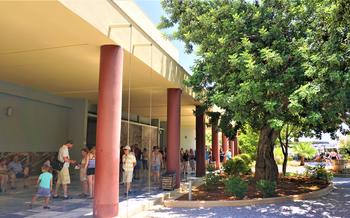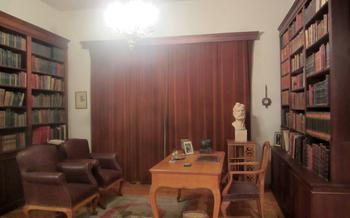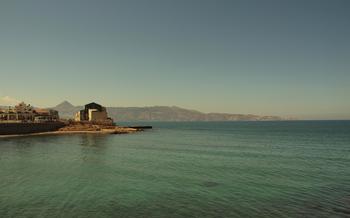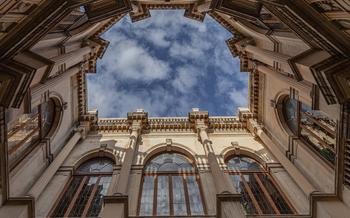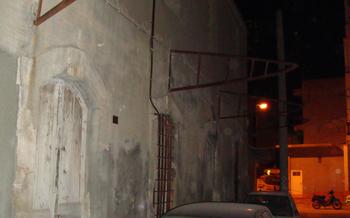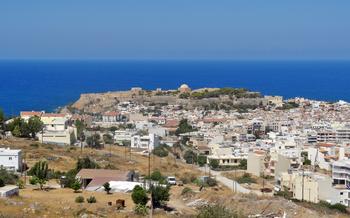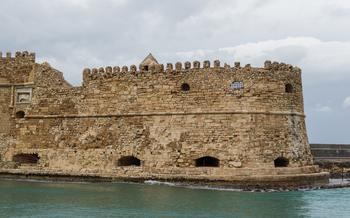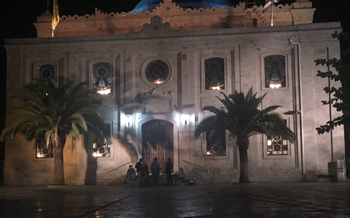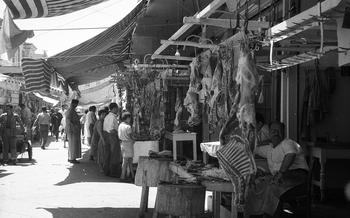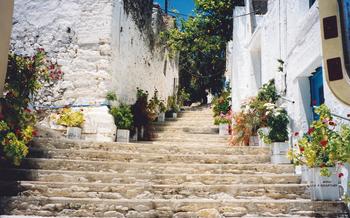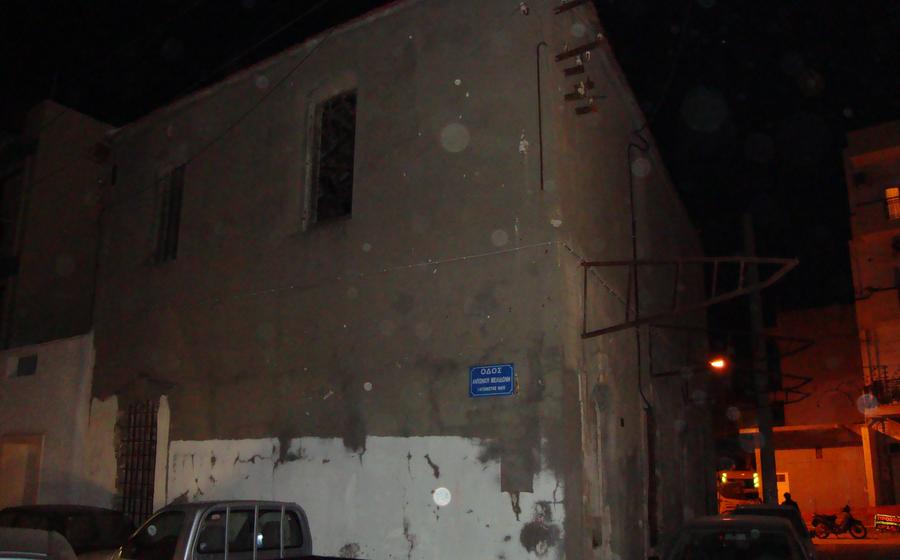
Museum of Cretan Ethnology
- The Museum of Cretan Ethnology: A Journey into Cretan Culture
- Location and Accessibility
- Curated Collections: A Glimpse into Cretan Heritage
- Interactive Exhibits: Engaging with Cretan Traditions
- Thematic Galleries: Exploring Different Aspects of Cretan Life
- Workshops and Events: Cultural Encounters and Learning
- Research Center: A Hub for Scholarly Exploration
- Temporary Exhibitions: Spotlighting Contemporary Cretan Expressions
- Museum Shop: Take a Piece of Crete Home
- Accessibility for All: Creating an Inclusive Environment
- Hours of Operation and Admission Fees
- Visitor Services: Enhancing the Museum Experience
- Insider Tip: Unforgettable Experiences
The Museum of Cretan Ethnology: A Journey into Cretan Culture
The Museum of Cretan Ethnology stands as a testament to the rich and diverse cultural heritage of Crete. Founded in 1973, the museum has evolved into a leading institution dedicated to preserving, showcasing, and promoting Cretan culture through its extensive collections, interactive exhibits, and educational programs. Its mission is to create a living and breathing space where visitors can immerse themselves in the traditions, customs, and way of life that have shaped this unique island.
The museum's collection is a treasure trove of artifacts and exhibits that provide a glimpse into the everyday lives of Cretans throughout history. From traditional costumes and jewelry to agricultural tools and household items, each object tells a story about the people who used them and the culture they created. The arrangement of the exhibits allows visitors to trace the evolution of Cretan culture from its ancient roots to the present day, offering a comprehensive understanding of the island's rich heritage.
Location and Accessibility
The Museum of Cretan Ethnology is conveniently located in the heart of Heraklion, the capital city of Crete. Its exact address is Leoforos Eleftherias 7, within easy reach of major tourist attractions, shopping areas, and public transportation hubs.
To reach the museum by public transportation, visitors can take the local bus lines that stop nearby, such as lines 1, 2, 3, 4, 5, 6, and The closest bus stop is "Ethnological Museum," just a short walk from the museum's entrance.
For those traveling by car, the museum offers limited parking spaces on-site, subject to availability. However, visitors are advised that parking in the city center can be challenging, especially during peak tourist season. Alternative parking options include nearby public parking lots or street parking, although it may require some searching.
The Museum of Cretan Ethnology is committed to ensuring accessibility for all visitors. The museum's entrance is wheelchair accessible, and there are ramps and elevators throughout the building, allowing visitors with disabilities to navigate the exhibits comfortably. Additionally, wheelchairs are available for visitors' use upon request.
Curated Collections: A Glimpse into Cretan Heritage
The Museum of Cretan Ethnology houses a rich and diverse collection of artifacts that provide a comprehensive overview of Cretan culture. The exhibits include a wide range of items, from traditional costumes and jewelry to agricultural tools, household utensils, and religious objects. These artifacts offer a unique glimpse into the daily lives, customs, and traditions of the Cretan people throughout history.
One of the highlights of the collection is the display of traditional Cretan costumes. These intricate and colorful garments showcase the island's unique fashion heritage. Visitors can admire the elaborate embroidery, intricate lacework, and vibrant colors that characterize Cretan costumes. The museum also houses a collection of agricultural tools that provide insights into the island's agricultural practices and the importance of farming in Cretan society.
Household items, such as pottery, utensils, and furniture, offer a glimpse into the domestic life of Cretans. These objects reveal the ingenuity and craftsmanship of local artisans and shed light on the everyday routines and customs of Cretan households. Religious objects, including icons, crosses, and votive offerings, demonstrate the deep religious beliefs and practices of the Cretan people. These artifacts provide a glimpse into the spiritual life of the island and its connection to the Greek Orthodox Church.
Interactive Exhibits: Engaging with Cretan Traditions
The Museum of Cretan Ethnology offers visitors a truly interactive experience that allows them to engage with Cretan traditions in a hands-on way. Through a variety of innovative exhibits, the museum brings Cretan culture to life, creating a deeper connection between visitors and the region's rich heritage.
Hands-on Activities: - Visitors can participate in hands-on activities that immerse them in traditional Cretan crafts, such as pottery, weaving, and embroidery.
Multimedia Presentations: - Multimedia presentations and audio-visual displays provide visitors with a dynamic and engaging way to learn about Cretan history, customs, and traditions.
Interactive Workshops: - Interactive workshops and demonstrations offer visitors the chance to try their hand at traditional Cretan dances, learn to play traditional musical instruments, and participate in cooking classes using local ingredients.
Cultural Immersion: - The interactive exhibits at the Museum of Cretan Ethnology are designed to promote cultural immersion, allowing visitors to experience the essence of Cretan life and gain a deeper understanding of the region's unique cultural heritage.
Thematic Galleries: Exploring Different Aspects of Cretan Life
The Museum of Cretan Ethnology showcases its rich collection through various thematic galleries, each dedicated to a specific aspect of Cretan life and culture. These galleries offer visitors an immersive journey into the diverse traditions, customs, and practices that have shaped the Cretan identity.
One of the highlights is the gallery dedicated to traditional music and dance. Here, visitors can learn about the unique musical instruments of Crete, such as the lyra, the laouto, and the mandolin. They can also watch captivating performances of traditional dances, such as the lively "Pentozali" and the graceful "Siganos".
Another gallery focuses on religious customs and beliefs. It showcases sacred artifacts, icons, and vestments, providing insights into the deep religious traditions of Crete. Visitors can also learn about the island's numerous religious festivals and rituals, including the grand "Feast of Saint Minas".
The museum also features a gallery dedicated to Cretan cuisine. Here, visitors can learn about the island's rich culinary heritage, including the production of traditional products such as olive oil, cheese, and honey. They can also watch demonstrations of traditional cooking techniques and sample some of the delicious local dishes.
Temporary exhibitions are also organized regularly, showcasing contemporary Cretan expressions and highlighting the work of local and international artists. These exhibitions provide a platform for cultural exchange and exploration of contemporary issues and trends.
Workshops and Events: Cultural Encounters and Learning
The Museum of Cretan Ethnology hosts a variety of workshops and events that provide visitors with an opportunity to engage with Cretan traditions and immerse themselves in the local culture. These events are designed to promote cultural exchange, foster learning, and provide hands-on experiences that bring Cretan heritage to life.
Throughout the year, the museum offers workshops on traditional crafts, such as pottery, weaving, and embroidery. These workshops are led by skilled artisans who share their expertise and techniques, allowing participants to create their own unique souvenirs and learn about the history and significance of these traditional crafts.
Cooking workshops are another popular offering, providing visitors with the chance to learn about Cretan cuisine and prepare traditional dishes using fresh, local ingredients. These workshops are a great way to discover the flavors and aromas of Cretan gastronomy and learn about the cultural significance of food in Cretan society.
The museum also organizes music and dance workshops, where visitors can learn traditional Cretan dances and play traditional instruments. These workshops create a lively and interactive atmosphere, allowing participants to experience the vibrancy and energy of Cretan music and dance.
Cultural events, festivals, and performances are regularly held at the museum, showcasing various aspects of Cretan heritage. These events feature live music, dance performances, storytelling sessions, and exhibitions, providing visitors with a rich and immersive cultural experience.
Participation in workshops and events is a fantastic way to connect with local artisans, learn about traditional practices, and gain a deeper understanding of Cretan culture. Check the museum's website or inquire at the information desk for the event schedule and registration details.
Research Center: A Hub for Scholarly Exploration
The Museum of Cretan Ethnology is not just a showcase of cultural artifacts; it is also a hub for scholarly exploration and research. The museum's research center provides scholars with access to a wealth of resources, including a comprehensive library, archives, and research facilities. These resources are invaluable for researchers studying Cretan ethnology, history, and culture.
The museum collaborates with international institutions to conduct joint research projects, fostering cross-cultural exchange and promoting a deeper understanding of Cretan heritage. The center also hosts conferences, seminars, and lectures, providing a platform for scholars to share their research findings and engage in discussions with peers.
The museum's publications, including academic journals, monographs, and conference proceedings, disseminate research findings to a wider audience, contributing to the preservation and dissemination of Cretan knowledge. Through its research initiatives, the Museum of Cretan Ethnology plays a vital role in advancing the study of Cretan culture and promoting its significance on a global scale.
Temporary Exhibitions: Spotlighting Contemporary Cretan Expressions
The Museum of Cretan Ethnology also hosts temporary exhibitions that showcase contemporary Cretan expressions and celebrate the vibrant creativity of the island. These exhibitions provide a platform for local and international artists to showcase their works, engage in cross-cultural exchanges, and explore contemporary issues and trends.
The museum collaborates with both established and emerging artists, providing them with a space to share their unique perspectives and interpretations of Cretan culture. The exhibitions often feature a diverse range of artistic mediums, including paintings, sculptures, installations, photography, and mixed media.
Through these temporary exhibitions, the museum aims to promote contemporary Cretan art and foster a dialogue between artists, visitors, and the wider community. It encourages visitors to appreciate the evolution of Cretan culture and explore the ways in which contemporary artists are reinterpreting and responding to traditional practices and customs.
The temporary exhibitions are typically limited-time events, so it's important to check the museum's calendar before your visit to see what's currently on display. These exhibitions offer a unique opportunity to experience the vibrancy and diversity of contemporary Cretan art and gain insights into the creative minds shaping the island's cultural landscape.
Museum Shop: Take a Piece of Crete Home
The Museum of Cretan Ethnology offers a unique opportunity to bring a piece of Crete back home with you. Its well-stocked museum shop is a treasure trove of souvenirs, handicrafts, and traditional products that celebrate the island's rich culture.
Browse through an array of handmade ceramics, intricately woven textiles, and exquisite jewelry, all inspired by traditional Cretan motifs and designs. Whether you're looking for a unique souvenir or a thoughtful gift, you're sure to find something special here.
In addition to souvenirs, the museum shop also offers a diverse selection of books and publications on Cretan history, ethnography, and folklore. Immerse yourself in the island's fascinating past through these captivating reads, and gain a deeper understanding of its unique traditions and customs.
Don't forget to pick up some traditional Cretan products, such as aromatic olive oil, sweet honey, and herbal teas. These culinary delights are not only delicious but also make for wonderful gifts for friends and family back home.
By shopping at the museum shop, you not only take home a tangible piece of Crete but also support local artisans and the preservation of traditional crafts. Your purchase contributes to the sustainability and vitality of the island's rich cultural heritage.
Accessibility for All: Creating an Inclusive Environment
The Museum of Cretan Ethnology is committed to creating an inclusive environment that welcomes visitors from all backgrounds and abilities. Accessibility features have been carefully considered to ensure that everyone can enjoy the museum's exhibitions and programs.
For visitors with disabilities, the museum offers wheelchair ramps, elevators, and accessible restrooms. Guided tours in multiple languages, including sign language, are available upon request. Audio guides and descriptive materials are provided for visitors with visual impairments, allowing them to fully engage with the exhibits.
Families with young children will find educational materials designed specifically for kids, making the museum a fun and educational experience for the whole family.
The museum's commitment to accessibility extends beyond physical features. Staff members are trained to be welcoming and helpful to all visitors, regardless of their abilities or needs. The museum also offers a variety of programs and events designed to be inclusive and engaging for everyone.
Hours of Operation and Admission Fees
The Museum of Cretan Ethnology is open to the public Tuesday through Sunday from 9:00 am to 5:00 pm. Please note that the museum is closed on Mondays.
Admission fees are as follows:
- Adults: €5
- Children (6-12 years): €50
- Students and seniors (65+ years): €50
- Families (two adults and two children): €12
- Groups (10 or more): €4 per person
Online ticketing is available on the museum's website, where you can purchase tickets in advance and skip the line.
Admission is free of charge on the first Sunday of each month.
Visitor Services: Enhancing the Museum Experience
The Museum of Cretan Ethnology offers a range of visitor services to enhance your experience and ensure a memorable visit. Multilingual staff is available throughout the museum to assist visitors with any inquiries or provide information about the exhibits. Guided tours are offered in various languages, allowing visitors to delve deeper into the cultural significance and stories behind the artifacts. The museum also provides a cloakroom and storage facilities for visitors' convenience, enabling them to store their belongings and explore the exhibits freely.
To complete your visit, the museum features a café and restaurant where you can savor delicious Cretan cuisine and refreshments. Enjoy a light lunch, indulge in traditional Cretan delicacies, or simply relax with a cup of coffee while reflecting on your museum experience. The café and restaurant offer an inviting ambiance, making them ideal places to unwind and soak in the cultural atmosphere.
Insider Tip: Unforgettable Experiences
Beyond the main attractions, the Museum of Cretan Ethnology holds hidden gems that offer unforgettable experiences for curious visitors. Explore the lesser-known corners of the museum to discover captivating exhibits that shed light on unique aspects of Cretan culture. Keep an eye out for special events, exhibitions, and workshops that delve deeper into specific themes and provide a more immersive experience.
To fully appreciate the museum's offerings, plan your visit during the off-season or on a weekday to avoid crowds and enjoy a more tranquil atmosphere. This will allow you to engage with the exhibits at your own pace, ask questions to the knowledgeable staff, and truly immerse yourself in the rich tapestry of Cretan culture.
